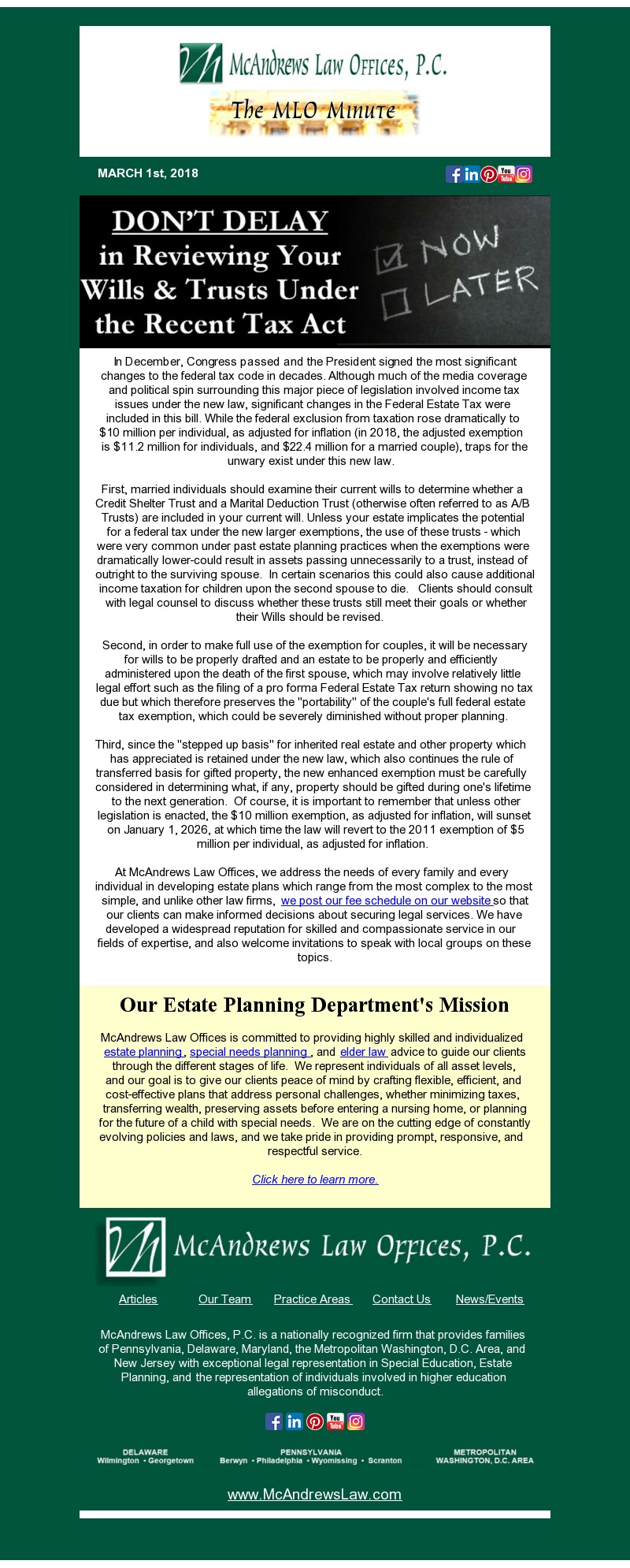2018
The MLO Minute: Don’t delay in reviewing your wills and trusts under the recent tax act
In December, Congress passed and the President signed the most significant changes to the federal tax code in decades. Although much of the media coverage and political spin surrounding this major piece of legislation involved income tax issues under the new law, significant changes in the Federal Estate Tax were included in this bill. While the federal exclusion from taxation rose dramatically to $10 million per individual, as adjusted for inflation (in 2018, the adjusted exemption is $11.2 million for individuals, and $22.4 million for a married couple), traps for the unwary exist under this new law.
First, married individuals should examine their current wills to determine whether a Credit Shelter Trust and a Marital Deduction Trust (otherwise often referred to as A/B Trusts) are included in your current will. Unless your estate implicates the potential for a federal tax under the new larger exemptions, the use of these trusts – which were very common under past estate planning practices when the exemptions were dramatically lower-could result in assets passing unnecessarily to a trust, instead of outright to the surviving spouse. In certain scenarios this could also cause additional income taxation for children upon the second spouse to die. Clients should consult with legal counsel to discuss whether these trusts still meet their goals or whether their Wills should be revised.
Third, since the “stepped up basis” for inherited real estate and other property which has appreciated is retained under the new law, which also continues the rule of transferred basis for gifted property, the new enhanced exemption must be carefully considered in determining what, if any, property should be gifted during one’s lifetime to the next generation. Of course, it is important to remember that unless other legislation is enacted, the $10 million exemption, as adjusted for inflation, will sunset on January 1, 2026, at which time the law will revert to the 2011 exemption of $5 million per individual, as adjusted for inflation.





